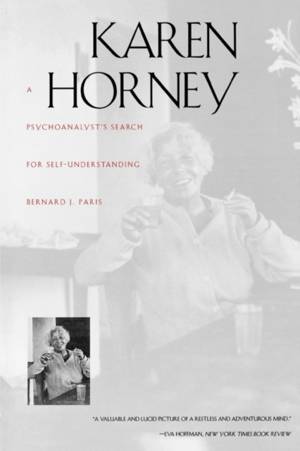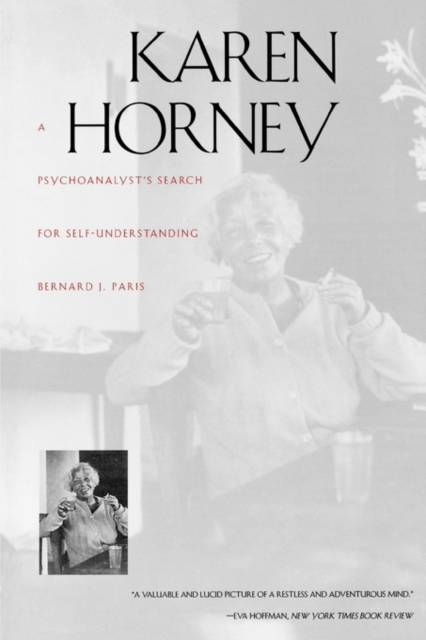
- Afhalen na 1 uur in een winkel met voorraad
- Gratis thuislevering in België vanaf € 30
- Ruim aanbod met 7 miljoen producten
- Afhalen na 1 uur in een winkel met voorraad
- Gratis thuislevering in België vanaf € 30
- Ruim aanbod met 7 miljoen producten
Zoeken
€ 71,45
+ 142 punten
Omschrijving
Karen Horney (1885-1952) is regarded by many as one of the most important psychoanalytic thinkers of the twentieth century. Her early work, in which she quarreled with Freud's views on female psychology, established her as the first great psychoanalytic feminist. In her later years, she developed a sophisticated theory of her own which provided powerful explanations of human behavior that have proved to be widely applicable. Yet through these years of intellectual achievement, Horney struggled with emotional problems. This engrossing study of Horney's life and work draws on newly discovered materials to explore the relation between her personal history and the evolution of her ideas. Bernard J. Paris argues that Horney's inner struggles-in particular her compulsive need for men-induced her to embark on a search for self-understanding, which she recorded first in her diaries and then in her covertly autobiographical psychoanalytic writings. Although this search brought Horney only partial relief from her problems, it led her to profound and original insights into the human psyche. Paris describes Horney's life-her childhood and adolescence in Germany, marriage to Oskar Horney, motherhood, analysis and self-analysis, emigration to the United States, founding of the American Institute for Psychoanalysis, ostracism by the psychoanalytic establishment, and her many romantic liaisons. At the same time he examines the various stages of Horney's thought, showing how her experiences influenced her ideas. Focusing particularly on Horney's later work, Paris shows her mature theory to be an important contribution to the study of literature, biography, gender and culture, as well as to psychoanalysis and psychology.
Specificaties
Betrokkenen
- Auteur(s):
- Uitgeverij:
Inhoud
- Aantal bladzijden:
- 314
- Taal:
- Engels
Eigenschappen
- Productcode (EAN):
- 9780300068603
- Verschijningsdatum:
- 1/08/1996
- Uitvoering:
- Paperback
- Formaat:
- Trade paperback (VS)
- Afmetingen:
- 156 mm x 234 mm
- Gewicht:
- 526 g

Alleen bij Standaard Boekhandel
+ 142 punten op je klantenkaart van Standaard Boekhandel
Beoordelingen
We publiceren alleen reviews die voldoen aan de voorwaarden voor reviews. Bekijk onze voorwaarden voor reviews.











